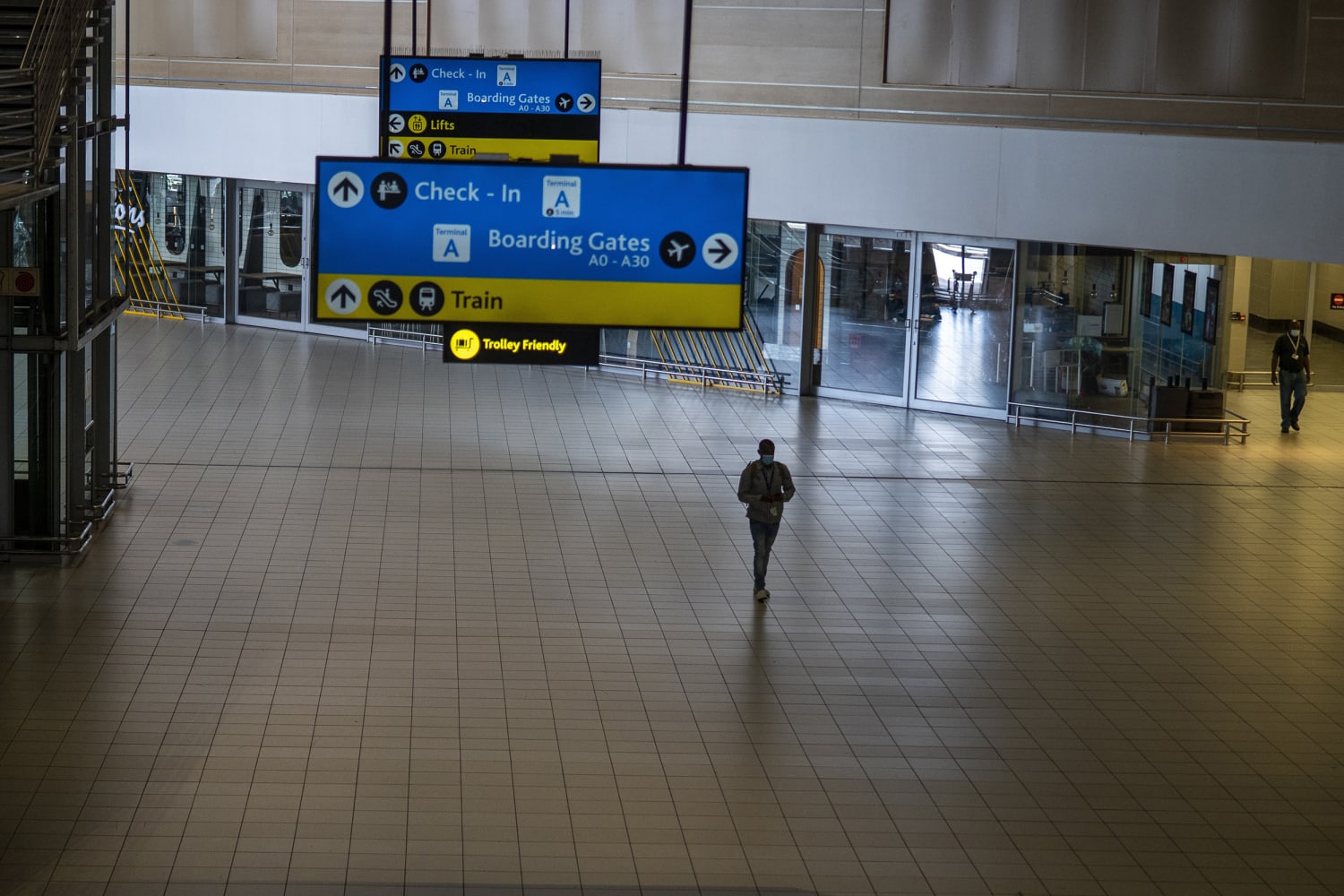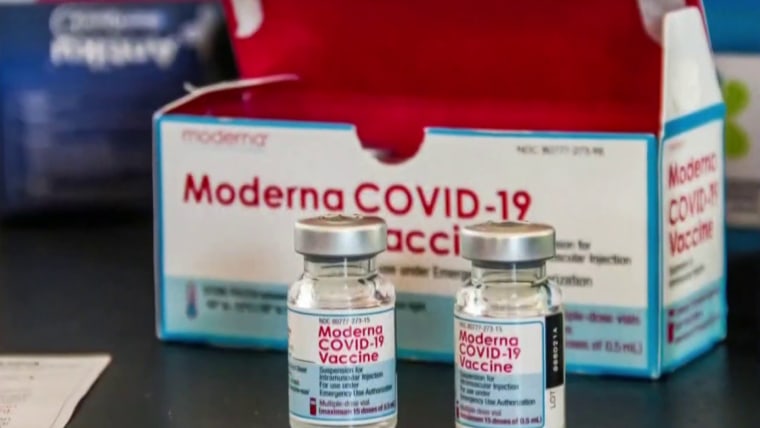When Jeremy Kamil got his first look at B.1.1.529, the Covid variant that would soon be named omicron, it did not take long to see the differences.
The variant’s spike proteins, which cover the outside of the virus and are the main targets of vaccines and the body’s immune responses, had more than 30 mutations that made it different from the virus that first emerged in late 2019.
“The number of changes blew people’s minds,” Kamil, an associate professor of microbiology and immunology at Louisiana State University Health Shreveport, said.
The World Health Organization has identified and tracked more than 20 Covid variants. Yet unlike others that popped up around the world before mostly fizzling out (including the lambda variant that was first documented last December in Peru or the mu variant detected a month later in Colombia), experts say there were early signs that omicron’s cocktail of mutations made it different and worthy of swift action — even overreaction.
While it’s too soon to know what the mutations mean for the effectiveness of vaccines or how sick people could become from the variant, omicron’s emergence also highlights the frustrating reality of the Covid pandemic: Variants will continue to pose a serious threat until countries around the world have more equal and ready access to vaccines, experts say.
“It’s definitely sobering,” Kamil said. “It’s an exaggeration to say we’re back at square one, but this is not a good development.”
Within hours of the World Health Organization designating omicron a “variant of concern” on Friday, dozens of countries imposed new travel bans, places that had loosened restrictions reintroduced mask mandates and anxieties ran high.
It was the kind of quick and intense development reminiscent of early stages of the pandemic, prompting some concern that governments were overreacting before enough about omicron was known.
“It’s partly why people started facetiously calling these things ‘scariants,’” said Dr. Amesh Adalja, an infectious disease doctor and a senior scholar at the Johns Hopkins Center for Health Security.
But even before it was given the omicron designation, the variant quickly gained attention among Covid researchers.
South Africa was first to report clusters of cases last week involving the omicron variant. Days before, data on the newly identified variant had also been uploaded to GISAID, an online database for disease variants, by a research team in Hong Kong, followed by more early sequences from scientists in Botswana.
The number of mutations observed with the omicron variant has not been previously seen with other strains, Adalja said. There are concerns that specific mutations to the spike protein could make omicron less vulnerable to the so-called neutralizing antibodies generated by vaccines or natural immunity from prior Covid-19 infections.
“There’s a very good chance this variant will be very resistant to neutralizing antibodies, but we can’t yet say with any degree of certainty how resistant,” said Theodora Hatziioannou, a virologist at Rockefeller University in New York City.
Researchers have been preparing for this possibility.
In lab experiments with a virus that was genetically altered so that it does not pose a threat to humans, Hatziioannou and her colleagues produced myriad combinations of spike protein mutations and tested how well they were able to evade Covid-19 antibodies.
One of their more worrisome outcomes was observed in a lab-produced spike protein that carried 20 mutations — more than had been observed in any known variant at the time, but fewer than omicron — that was largely resistant to neutralizing antibodies from both vaccines and natural immunity.
More research is needed to understand how omicron behaves in real-world settings, but Hatziioannou said many of the variant’s mutations correspond to the types of changes that she and her colleagues studied in the lab.
“Nature essentially reproduced our experiment, only at a much larger scale,” she said.
Scientists around the world are racing to characterize the omicron variant, focusing in particular on whether it is more contagious, causes more severe disease or can evade the protection of vaccines. Those open questions may awaken similar anxieties from early in the pandemic, but Carl Bergstrom, a professor of biology at the University of Washington, said drug therapies and the vaccines still offer crucial advantages over the virus.
“We have a whole bunch of tools now that we didn’t have before,” he said. “But it’s disappointing, for sure. There was kind of this general feeling that we’re coming off this delta wave, we’re triple boosted and it could almost be like 2019 again.”
Adalja said the emergence of omicron should spur people to get vaccinated or receive a booster shot. Countries should also increase testing for Covid-19 in order to track where — and how quickly — the variant is spreading.
Since omicron was designated a “variant of concern,” more than 40 countries have introduced travel bans for southern Africa.
Hatziioannou said such sweeping measures may have been a “knee jerk reaction” from the most recent devastating wave of delta infections, but she added that travel bans are largely ineffective.
“The variant is likely already here,” she said. “Closing the barn door after the horses have bolted is useless.”
Cases involving the omicron variant have so far been detected in at least 16 countries. The variant has not yet been confirmed in the United States but Dr. Anthony Fauci, director of the National Institute of Allergy and Infectious Diseases and the nation leading infectious disease expert, said it’s possible that omicron is already spreading in the country.
“When you have a virus like this, it almost invariably is ultimately going to go essentially all over,” he said Saturday on NBC’s “Weekend TODAY.”
President Joe Biden said Monday that Americans should get fully vaccinated or get a booster shot, but he attempted to allay fears about the threat of omicron.
“The variant is a cause for concern, not a cause for panic,” he said.
Kamil similarly said it’s too early to know what impact the omicron variant may have in the U.S. and around the world. He added, however, that it underscores the importance of vaccine equity and the need for wealthy countries to help provide that access.
“A booster shot in America has a far smaller effect of preventing variants than the first dose that someone gets in Chad or Benin or Togo,” he said. “If we do not protect other nations, we are all going to sink together.”
Source: | This article originally belongs to Nbcnews.com











